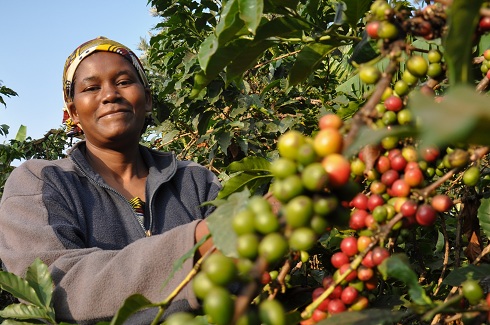
Kenya has embarked on an aggressive mapping exercise to comply with the European Union Deforestation Regulations (EUDR), a move aimed at securing continued access to the lucrative EU coffee market ahead of the 30th December 2025 deadline.
According to a media statement by the Agriculture and Food Authority (AFA), the government, through the Ministry of Agriculture and Livestock Development, is leading a nationwide geospatial mapping effort of all coffee farms. The exercise will enable Kenya to prove that its coffee exports are not linked to deforestation after 31st December 2020, a key requirement under the EUDR.
The regulation, passed by the European Union, demands that all agricultural commodities—including coffee, cocoa, soy, palm oil, beef, rubber, and wood—be traceable to non-deforested land. Initially set to take effect in December 2024, the deadline was extended by a year to give producers more time to comply. The EUDR is intended to ensure that commodities sold in the EU and globally no longer contribute to deforestation or forest degradation.
“Kenya, among other countries and companies which export products to the European Union Market, is expected to fully adhere to the European Union Deforestation Regulations (EUDR) by 30th December 2025,” said Dr. Bruno Linyiru, Director General of the Agriculture and Food Authority.
As of July 2025, 30% of Kenya’s total coffee production area has already been geo-mapped. The statement notes that 32,688 hectares of coffee farms have been mapped across 16 out of the 33 coffee-growing counties using satellite imagery. Kenya’s total coffee farming area is estimated at 109,384 hectares.
The mapping process is being spearheaded by the EUDR Data Committee, a multi-agency team that includes the State Department of Agriculture, State Department for Cooperatives, Kenya Forest Service, Kenya Space Agency, Directorate of Remote Survey and Remote Sensing (DRSRS), and Kenya Agricultural and Livestock Research Organization (KALRO). Coordination is under the AFA, which regulates all scheduled crops as mandated by the Crops Act, 2013.
“In the next two months, teams under the EUDR Data Committee will map out the remaining part under coffee production countrywide,” said Dr. Linyiru. “The exercise is expected to be completed in due time, to meet the deadlines set in the EUDR.”
The stakes are high for Kenya’s coffee sector, which exports 95% of its produce. About 55% of these exports go to the EU, particularly Belgium, Germany, Sweden, and Finland. Over the past five years, Kenya has exported 122,699 metric tonnes of clean coffee to the EU, earning USD 695.7 million—equivalent to approximately KES 90 billion.
Dr. Linyiru emphasized that smallholder farmers are a vital part of the equation, contributing around 70% of Kenya’s total coffee output. “They form the backbone of the rural economy in 33 coffee-growing counties,” he said.
AFA has urged stakeholders and members of the public seeking more information or clarification on the EUDR to contact the authority directly via info@afa.go.ke.







